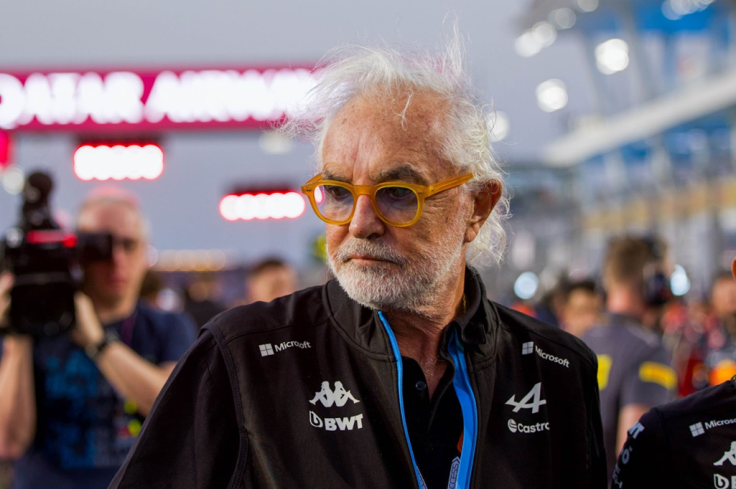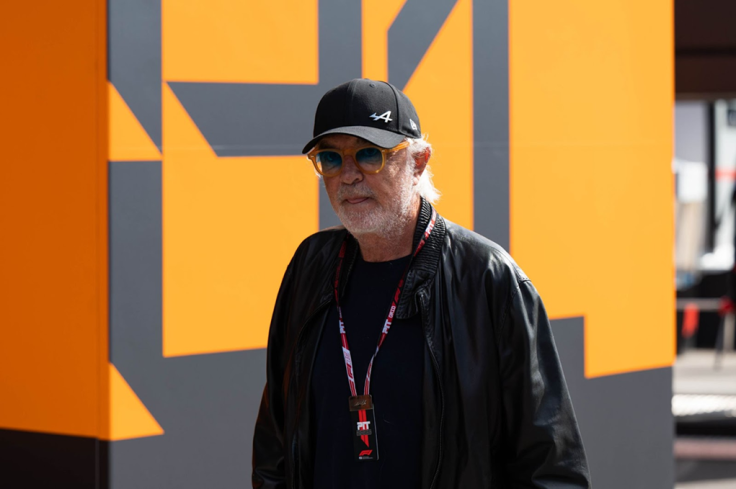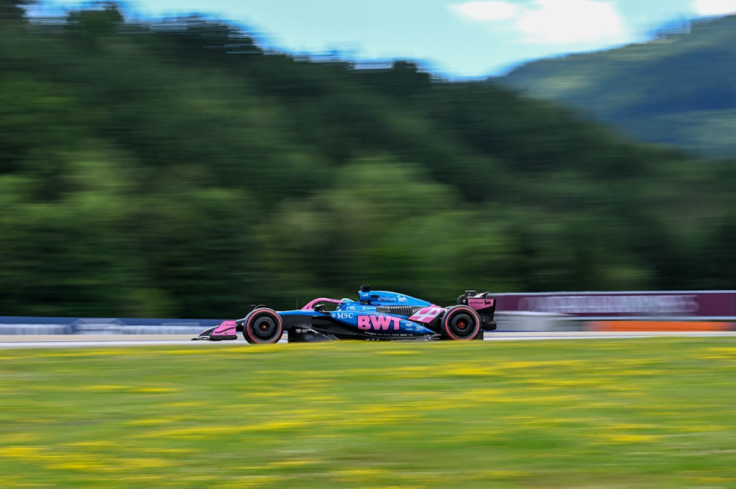Flavio Briatore's leadership at Alpine is stalling. Will the Board at Renault turn up the pressure?

The BWT Alpine Formula One team sits firmly at the bottom of the constructors' table.
In the team's various guises over the years, as Renault, Lotus, and Alpine, it has not been champion since 2006. In more than a hundred Grands Prix since the team rebranded as Alpine in 2021, it has won one race and scored just a handful of additional podium finishes.
A team with a rich legacy in F1 seems to be mired in bad decision-making off the track, coupled with poor performances on it. What's gone wrong, and where does the buck stop? Fingers are now pointing to de facto team principal, 75-year-old veteran, Flavio Briatore.
Out of His Depth
Briatore's return to F1 after a 16-year hiatus was never going to be easy, not least because F1 is a different commercial, cultural, and technical beast from 16 years ago, but any hopes that Briatore could adapt have evaporated since he took the helm of Alpine in May this year.
Briatore has led Alpine to the bottom of the championship and appears to be out of his depth in a sport that, unlike the Italian businessman, has evolved.
Previously, Briatore managed to win titles with the Benetton and Renault teams, helping Michael Schumacher achieve supremacy in the mid-1990s, and Fernando Alonso in 2005 and 2006.
Back then, top teams consisted of perhaps 100 people, and resources were focused on the core mechanics, drivers, and engineers. New teams could make an impression with a staff of less than 50 people.
Today, F1 operations are sprawling and more complex, with top teams such as McLaren employing more than 1,000 people dedicated to advanced aerodynamics, complex data analysis, manufacturing, extensive logistical support, and marketing.
By his own admission, Briatore dislikes technicalities, once describing F1 as a sport of accountants rather than "gladiators." In 2020, he railed against new regulations featuring "greener" engines that use less fuel, claiming that top drivers were being forced "to behave on the track like accountants" and that it was "leaving behind the most beautiful sport in the world."

Exodus of Key Personnel
In other words, the F1 arena that Briatore has stepped back into bears little resemblance to the one he left almost two decades ago, and in an unforgiving sport where focused technical analysis, collaboration, attention to detail, and ethics matter. Weaknesses in Briatore's leadership have, unsurprisingly, been exposed.
The Italian, who left Formula One in 2009 after the infamous Crashgate scandal, was hired in 2024 by the then CEO of Renault, Luca de Meo, as an executive advisor to Alpine before assuming the mantle of 'de facto' team principal following Oliver Oakes' resignation in May 2025.
Briatore's tenure has been blighted by a churn of senior figures at Alpine, criticism of his short-term focus, and failing to develop a coherent, long-term strategy for the team's future in F1.
Key personnel, including Cyril Abiteboul, Marcin Budkowski, Alain Prost, Laurent Rossi, Otmar Szafnauer, and Bruno Famin, have all recently left Alpine for one reason or another. Respected paddock figures like Pat Fry, Matt Harman, and Alan Permane have also departed.
The Italian did not help his cause when last week, while other team principals were busy fine-tuning preparations ahead of the Dutch Grand Prix, Briatore hit the headlines after being photographed spending time on his luxury yacht off the south of France, hosing down a bikini-clad woman.
Convictions
While some regard him as a colourful character who represents the glory days of yesteryear and brings a touch of glamour to Alpine, Briatore's critics argue that the Italian businessman is tainted by his past, which is littered with controversy.
In the 1980s, Briatore was convicted in Italy on fraud charges and received two prison sentences, which he avoided serving by fleeing to the Virgin Islands in the Caribbean. He set up several United Colours of Benetton franchises—paving the way for his role at Benetton's F1 team—and returned to the EU after his convictions were later extinguished by an amnesty.
After a highly successful period in F1 leading Benetton and Renault to a string of Drivers' and Constructors' World Championships, Briatore fell from grace in 2009 after the Crashgate scandal. He was banned from motor sport for life after instructing driver Nelson Piquet Jr to deliberately crash during the 2008 Singapore Grand Prix to help teammate Fernando Alonso win.
The ban was later overturned by a French court, paving the way for Briatore's return to F1 in the summer of 2024 on a consultancy basis.
Nervous Investors
However, since Briatore has been with Alpine, the team has faltered. They are last in the F1 Constructors table and have decided to do away with their power units, confirming that the Renault F1 engine will be discontinued for 2026 and beyond. Mercedes will now provide Alpine's gearbox and engines until 2030. This has controversially ended engine production at the Viry-Chatillon factory outside Paris after this season, which has been costing the team up to $250 million per year. The new collaboration with Mercedes will save Alpine in the region of $200 per annum, but will heavily rely on the engineers getting the new alliance right.
Alpine's estimated turnover comes in at $333 million per annum, and their 2023 year-end profits after tax came in at $10.4 million, down from $34.8 million from the previous year.
With that downward trend set to continue, given the tumultuous past 18 months with Briatore at the top, Renault has some nervous shareholders. These include Nissan and the French Government to a tune of around 15% respectively, plus institutional investors of the calibre of Amundi, Vanguard, BlackRock, Capital Research, and Magallanes. Furthermore, a direct equity investment was made in 2023 by an investor consortium led by Otro Capital, RedBird Capital, and Maximum Effort, which bought a 24% stake in Alpine Racing Ltd for $218 million. Big-name stars, including Rory McIlroy, Anthony Joshua, Travis Kelce, Patrick Mahomes, Ryan Reynolds, and Rob McElhenney, have all been confirmed as investors.
They must all be wondering what is going on at Alpine, and the quality of the decision-making at the top.
Briatore was appointed with a brief to restructure the team by focusing on top-level areas. According to the Renault press release at the time, these included scouting top talents and providing insights on the driver market, challenging the existing project by assessing the current structure, and advising on strategic matters. There seems to be no structure nor strategy, and Briatore has already admitted making mistakes with his young drivers.

Argentinian Driver and Sponsor
After the abrupt departure of former team principal Oakes in May, Briatore brutally benched the Australian rookie, Jack Doohan—who at that point was still trying to settle after six races in the team's second seat—so that the reserve driver, Franco Colapinto, could be "rotated" in.
The extent to which Briatore's decision to bring in Colapinto was based on a genuine belief that it was in the best interests of team performance, or by an injection of Latin American money, is open to speculation. In February of this year, Alpine announced that Mercado Libre, the Argentine e-commerce giant that sponsors Colapinto, had signed a partnership deal with the team.
It was perhaps only a matter of time, then, before the Argentinian driver was given a spot on the grid, and that moment came when Briatore stepped in as de facto team principal.
Colapinto supposedly had five rounds to prove himself, though Briatore later claimed the "experiment" had no expiry date and would be entirely based on performance. Yet Colapinto is still yet to score a point. After giving him nine races, Briatore has failed to react to Colapinto's disappointing performances with the same ruthlessness he demonstrated with Doohan.
For now, Briatore appears to have conceded that the Colapinto gamble has not paid off and must be looking at alternatives. His next move in determining who will drive for Alpine for the remainder of this and the start of next season will be crucial for the team's fortunes and possibly Briatore's.
The Italian claims that the new Renault CEO, Francois Provost, is "very enthusiastic" about Alpine in F1, but it is unclear if Provost, or indeed other Renault executives, hold the same view of Briatore. In a more pointed statement, Renault's chairman Jean-Dominique Senard seemed detached from Briatore's appointment last year: "The board did not review and did not take a position on his contract."De Meo handed Briatore a simple service contract worth in excess of $2m a year, with exorbitant profit-sharing bonuses from sponsorships that he brings to the team. This circumnavigated the right of oversight of the board of directors and was reported by L'Informe as "a disgrace for Renault," by an infuriated Senard.
With Alpine struggling, big changes are needed ahead of the 2026 season. Perhaps Briatore's only hope is that, having extended so much latitude to his error-strewn driver Colapinto, the board at Renault and its investors are equally forgiving of his own mistakes.
© Copyright IBTimes 2025. All rights reserved.





















